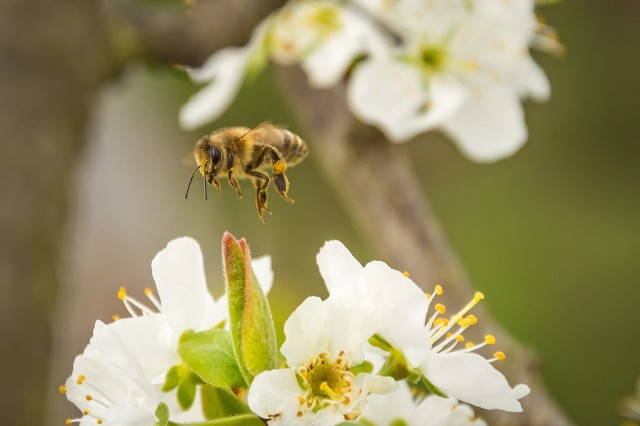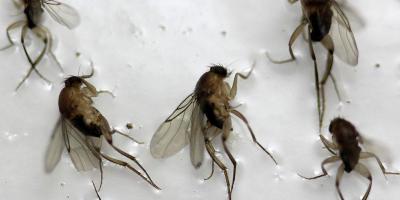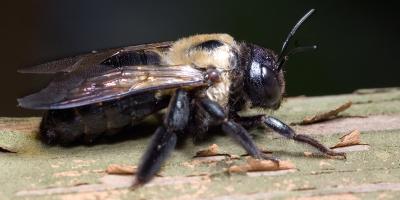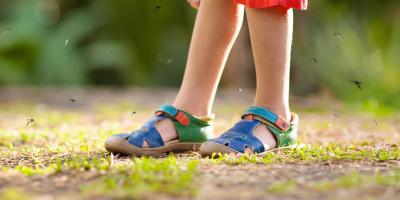The Benefits Of Bees To Your Garden (When Well-Controlled)

For growers and gardeners throughout New England, there are few feelings as fulfilling as staring out over a garden full of flowers in springtime, or a crop bed full of ripe produce ready to be harvested in late summer and fall. But if your garden is a little lacking in volume this year, the solution may be buzzing just beyond your reach: bees.
Apart from being expert producers of honey, bees also play a key role in pollination of nearly all flowers and fruits we enjoy here in the northeast - meaning the absence of bees could be the very thing holding your garden back from achieving its most bountiful harvests yet.
If you’re looking to boost your garden’s growing potential, here are a few reasons to consider keeping bees well-controlled around your plants, and how you can make sure your grow space stays as inviting to bees as possible.
For Every Flower, There’s A Bee
Anyone who’s spent time in the soil raising fruits, veggies, or flowers knows just how vital honey bees can be to the success of any garden.
When bees head out from the hive in search of food, they’re likely looking for two things: nectar (the sweet stuff flowers make from which bees get energy) or pollen (the powdery substance flowers use to reproduce, which provides protein for bees).
As they feed, bees spread pollen from flower to flower - a process called pollination, which is critical for plants to reproduce, produce seeds, and keep flowers and fruits coming in the months ahead. Without pollinators, flowers will not produce as many seeds or as many flowers, and this can leave your plants hungry at those times when they should instead be most productive.
Long story short: if you want flowers or fruits in your garden, you’re going to need some kind of pollinator. Given their unique place in the ecosystem (as well as their current struggle keeping colonies healthy and thriving), bees might just be your best bet.
Top Tips For Attracting Bees
If you’re looking for an easy way to bring more bees to your garden, there are a few time-tested techniques for encouraging controlled colony growth and supporting a nearby hive which could help bring serious benefit to your grow goals.
Plant Flowers Bees In Your Area Love
Nothing brings out the bees quite like a tempting bed of tasty flowers. For a colony of bees out searching for a suitable spot to build their hive, few factors play more of a role than where they can find flowers, and how much pollen and nectar those flowers can offer to a growing colony.
For those growers hoping to encourage bees to settle in for a snack, there are a few standard offerings which can prove highly tempting to the passing honey bee. Common herbs (like oregano, poppy, and clover) as well as a few favorite flowers (like marigolds, zinnias, geraniums, and asters) are known to be heavy pollen and nectar producers, and are bee-friendly enough to bring benefit to your entire garden.
Or, instead of planting bee-friendly plants in the garden directly, some growers instead prefer to promote the growth of bee-friendly wildflowers in the area around their gardens. This can help attract bees native to your area from far and wide without using up valuable growing space, all while supporting the local ecosystem in its most natural state.
For New Englanders, these plants most likely to attract pollinators may be already thriving in your area - all you need to do is bring them where you want bees to find them.
Give Those Bees A Place To Drink
Like just about every other living thing, bees need a reliable supply of fresh water to keep their colony growing. That means those growers looking to attract bees to their gardens should consider offering an easy-to-reach water source where bees can stop by for a quick drink before diving back in to pollinate your plants.
If you live by a body of fresh water, your job may already be done for you. However, for those living in drier or hotter climates, it might be a good idea to provide a small birdbath with clean, fresh water ready for the taking. That way, bees can settle in knowing they won’t be getting thirsty on those long, hot afternoons.
But Wait - Aren’t Bees Pests?
For many people living throughout the northeast and elsewhere, the sight of even a single bee can elicit a terrified reaction - and, all too often, a quick rush to eliminate the colony. But in most cases, this is not only unnecessary, but it may also be harmful to your environment.
Bees serve a critical role in the food chain, and keeping colonies healthy and thriving is actually hugely beneficial to any ecosystem. That’s why we always recommend safe and humane honeybee removal and relocation - especially when a hive is swarming in search of a new nesting place - to make sure the bees themselves can remain unharmed while removing the cause for alarm for those frightened by the sight of a hive.
Whether you’re dealing with a swarm gathered near your property or a beehive that might be a little too close to your family for comfort, our expert honeybee removal professionals can help make sure your efforts to protect and cultivate a bee population don’t interfere with your desire to have a safe place to call home.
If you’re ready to discuss smart bee solutions for your home or garden, or if you need advice or assistance managing a bee problem that may have gotten a little too out of control, get in touch with JP Pest Services and see what we can do to keep bees at a safe distance so you can keep your garden thriving.



